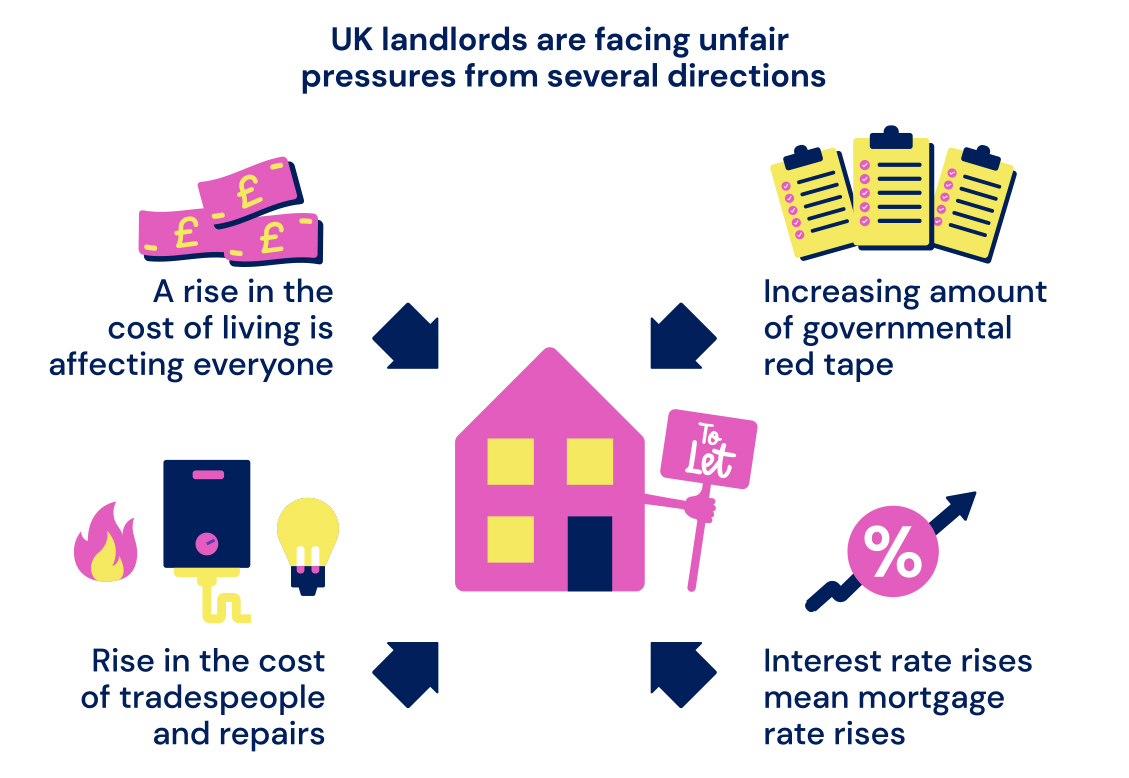24 May
CEO & Co-Founder of Hello Neighbour
The Renters’ Rights Act changes how landlords find tenants, set rents and manage risk. From 1 May 2026, the cost of getting things wrong at the start of a tenancy will be higher and the ability to fix mistakes later...
2 min read
24 May
CEO & Co-Founder of Hello Neighbour
The Renters’ Rights Act is now on the statute book and while most of its provisions do not take effect until May 2026, the implications are already being felt across the private rented sector. This legislation has been...
2 min read
24 May
CEO & Co-Founder of Hello Neighbour
A property licence is a legal requirement that demonstrates the property is suitable for occupation and managed to an acceptable standard. If you are found to be renting your property without a licence when you need...
2 min read
24 May
CEO & Co-Founder of Hello Neighbour
What is an EICR?
2 min read
24 May
CEO & Co-Founder of Hello Neighbour
A professional and independent property inventory is one of the simplest ways to protect yourself as a landlord. It creates a clear and impartial record of your property at the start of a tenancy and gives you the...
2 min read
24 May
CEO & Co-Founder of Hello Neighbour
Hello Neighbour – a look back at 2025 and what’s coming in 2026
2 min read
24 May
CEO & Co-Founder of Hello Neighbour
We understand that a landlord’s priority is finding the right tenant as quickly and easily as possible while remaining fully compliant with increasingly complex regulations. How you get there shapes the time you invest,...
2 min read
24 May
CEO & Co-Founder of Hello Neighbour
Last week we hosted a live webinar with more than 500 landlords to walk through one of the biggest changes we’ve seen in lettings for years. The Renters’ Rights Act is now on the statute book and although most of the...
2 min read
24 May
CEO & Co-Founder of Hello Neighbour
2 min read
24 May
CEO & Co-Founder of Hello Neighbour
We've run the numbers and it's crazy but true – London's landlords are wasting up to £1bn a year paying unfair tenancy renewal fees, when renting their properties through high street letting agents. There are over one...
2 min read
24 May
Copywriter at Hello Neighbour
Congratulations to the brilliant Hello Neighbour team for reaching the shortlist of the National LIS Awards 2023 in not one, but three categories including:
2 min read
24 May
Copywriter at Hello Neighbour
First things first, tell us a bit about your background I’ve always worked in tech. When I moved to the UK (from South Africa), I started out working as a programmer for a bank, then progressed to project manager, then...
2 min read
24 May
CEO & Co-Founder of Hello Neighbour
We are seeing the highest number of viewing enquiries in Greater London areas such as Enfield, Redbridge, Romford and Kingston upon Thames. Despite this, month on month rental prices are down as tenants look further...
2 min read
24 May
CEO & Co-Founder of Hello Neighbour
This might suggest that despite the supply/demand imbalance, the extraordinary rent increases of the last period are coming to an end. The tenant location wish list is also reflecting acceptance of greater commute...
2 min read
24 May
Copywriter at Hello Neighbour
Tell us about your background before joining Hello Neighbour?
2 min read
24 May
CEO & Co-Founder of Hello Neighbour
Whilst tenant demand remains at the inflated levels we have seen for the last 18 months, price increases are slowing down and landlords’ expectations for large rent increases are reducing. This might suggest that...
2 min read
24 May
Copywriter at Hello Neighbour
We’ve heard the headline, but can you tell us the real story behind Hello Neighbour?
2 min read
24 May
CEO & Co-Founder of Hello Neighbour
Landlords and tenants that join Hello Neighbour can’t help but tell us how happy they are to have made the move from their previous agency. So long to prohibitively high costs, pushy salespeople and poor service and...
2 min read
24 May
Copywriter at Hello Neighbour
There is no doubt that these are challenging times for landlords with one or two properties. We’re all struggling with the cost of living crisis and being a landlord seems to be getting more expensive every day; demand...
2 min read


COMMENT